Paintbucket Games’ The Darkest Files is a standout point-and-click adventure that immediately appealed to me as a long-time fan of the genre—especially those with absorbing, intricate, and meaningful narratives. The thing that has always drawn me to these games is their often-pacifistic nature, where odds are overcome not by brute force, but by trickery, intelligence, and ingenuity. Perhaps that’s what has led me to play more and more detective-style games as I’ve grown older, yet it’s too commonplace for them to feel vapid, absurd, or meaningless.
Thankfully, Paintbucket Games’ latest offering, “The Darkest Files,” presents a deeply absorbing narrative journey that warrants considerable attention, meshing together a point-and-click-like style with a meaningful and arguably educational tale. From the moment it loaded I found myself consistently drawn into its carefully constructed scenarios, masterfully blending compelling storytelling with a profoundly rich and refreshingly well-balanced engagement with history.

“The Darkest Files” opens by laying its inspiration bare; “The events in our game are based on true crimes committed during the Nazi era and were investigated in the young Federal Republic of Germany.” Set in 1956, you play as a young Jewish prosecutor recently hired by Attorney General Fritz Bauer to investigate said crimes. It’s a particularly difficult period of German history to cover, as many of the “old guard” police officers, prosecutors and judges were disinterested in these historical offences due to their own ties to the formerly all-encompassing Nazi Regime.
The developers have achieved a remarkable equilibrium here, venturing into this sombre and controversial territory of historical atrocities without resorting to exploitation or gratuitous detail. Instead, the game cultivates a mood of serious contemplation through the experiences of the original character of Esther Katz – who faces not only backlash from her family and the public for her role in this, but also the ghosts of her own past – inviting players to grapple with these challenging themes in a mature and thoughtful manner.
The nuanced and evocative writing, a soundscape that prioritizes atmospheric tension over jarring moments, and a visual style that, while cell-shaded, never diminishes the gravity of the events portrayed all weave together to create an immersive and satisfying experience. This dedication to a respectful depiction is a significant strength and distinguishes “The Darkest Files” within the landscape of games addressing historical tragedies.
The balance found is truly outstanding, outshining similar attempts at addressing the aftermath of the Second World War and should be seen as a new standard to aim for.
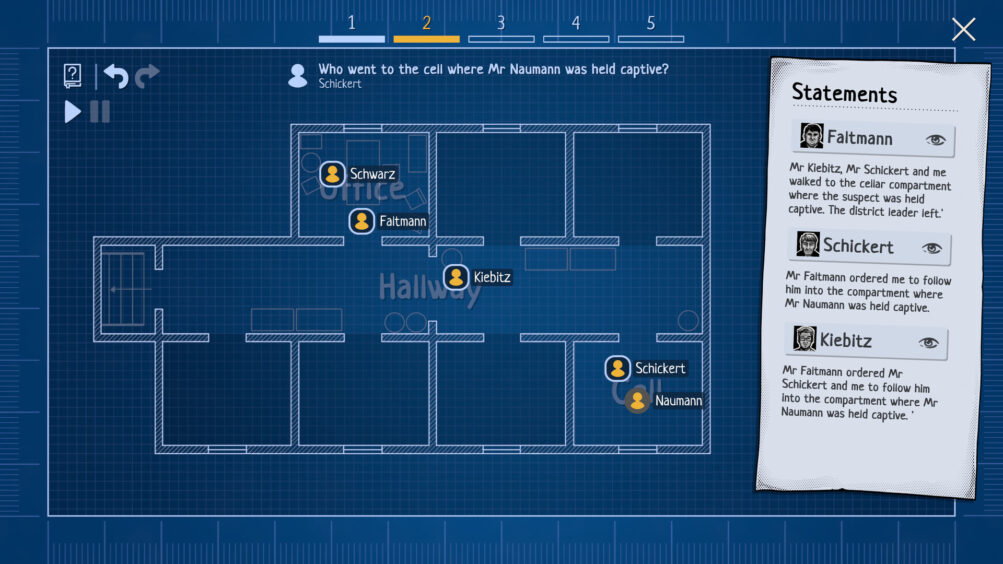
The narrative structure of “The Darkest Files” also stands out as a key strength. The game unfolds through a series of related cases each illuminating a different facet of historical injustice, but tied together by the central team of prosecutors facing down the will of the public. This episodic design allows for a wider exploration of themes and perspectives, preventing the narrative from becoming bogged down in a single, potentially overwhelming account, but allowing for a wider discussion of the time period to take place.
Each file you investigate feels like a distinct inquiry, complete with its own cast of characters, challenges, and ethical dilemmas. These individual narratives are skilfully interconnected as you progress through the wider narrative, forming a larger mosaic that speaks to the systemic nature of the historical issues at its core. This design choice maintains a sense of novelty and engagement, continually revealing new angles on the overarching themes without ever feeling fragmented.
The pacing within each file is also expertly managed, allowing for moments of intense investigation alongside periods of quiet reflection, effectively building tension and ensuring that the emotional impact of discoveries deeply resonates. You could almost compare this structure to the way in which procedural crime dramas operate, but with a greater appreciation of the time period and a laser-focus on the central themes at hand.
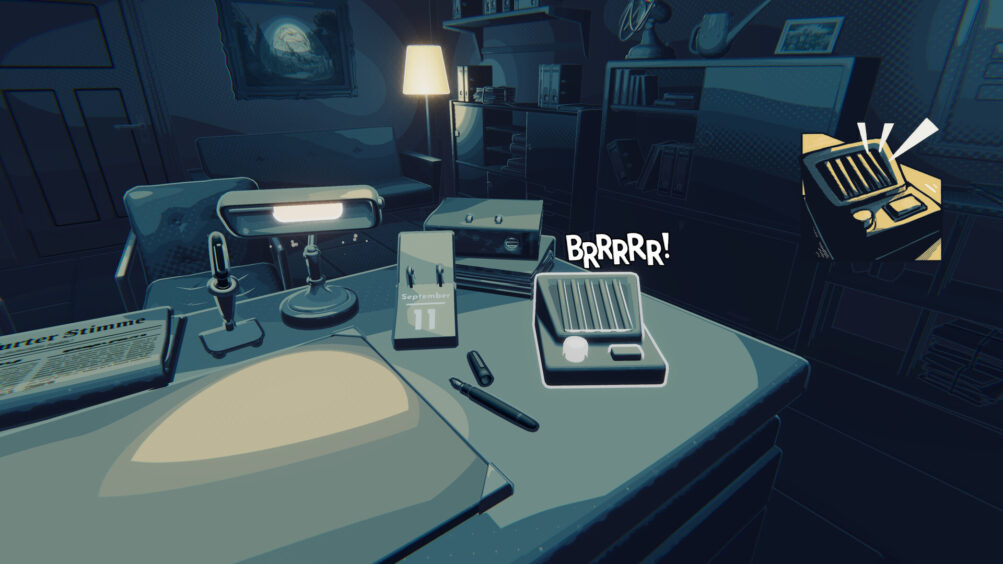
A particularly praiseworthy aspect of the game is its grounding in meticulous historical research. Paintbucket Games has clearly invested significant effort in ensuring the accuracy of the events, the societal backdrops, and even the language employed within the game. This commitment to authenticity imbues the narrative with a powerful weight, making the injustices depicted feel all the more real and impactful.
The game transcends simply recounting historical events; it immerses the player in the specific nuances of those times, fostering an understanding of the complexities and the human cost involved. Whilst names have been changed to protect the families of victims there is an astonishing feeling of truth to the whole experience.
The integration of gameplay mechanics with the narrative and historical context is also cleverly executed. As players delve into each case, they will examine documents, analyse evidence and make critical decisions that can significantly influence the story’s trajectory. These gameplay elements are not arbitrary obstacles; they are intrinsically linked to the process of uncovering historical truths and navigating the often murky paths to justice, and I found myself repeatedly doubting the initial choices and assumptions I had made earlier in a case’s investigation.
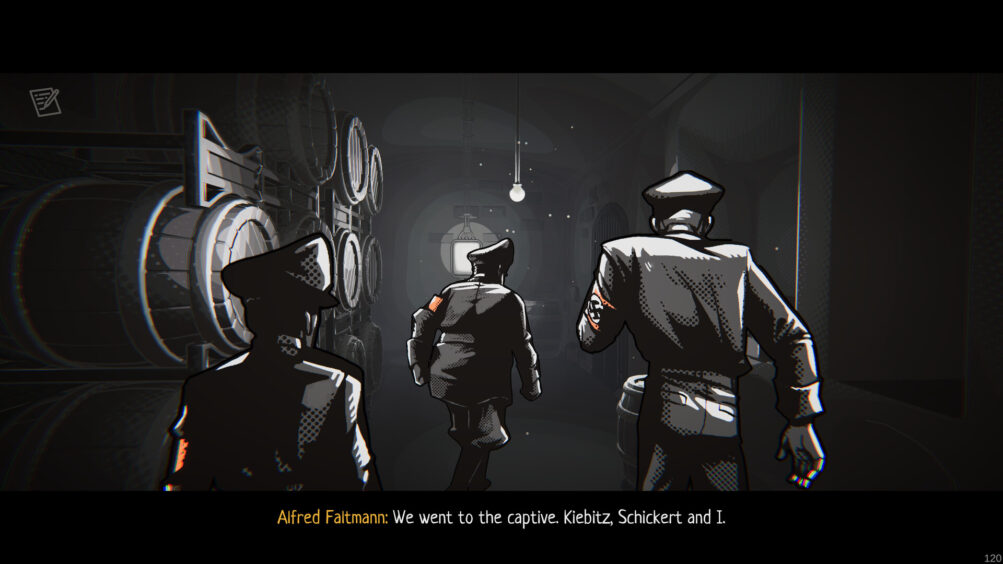
The constraints imposed by the historical setting – the absence of modern technology, and the prevailing social biases – are woven into the gameplay fundamentally, fostering a sense of realism and requiring players to think critically within the limitations of the time. As an example, in one case I found myself sure of the perpetrator for most of the investigation until some key documents finally arrived just before I interviewed the final suspect – having been delayed due to, you know, the fact they were literally being mailed to me.
This new information’s arrival changed my understanding of the case fundamentally, as I was able to then corroborate the statement of my prime suspect, throwing the other interrogations into doubt and leading me to delve into disparate documents to find the truth.
This thoughtful fusion of mechanics and narrative enhances the overall immersion and reinforces the choice made by Paintbucket to prioritise historical accuracy. During interviews you are shown the witness’ recollection of events visually, literally walking through them step by step in a dream-sequence-like fashion. You can interrupt these sections, asking for more detail on key elements without it becoming a simple memory exercise by interacting with objects or characters.
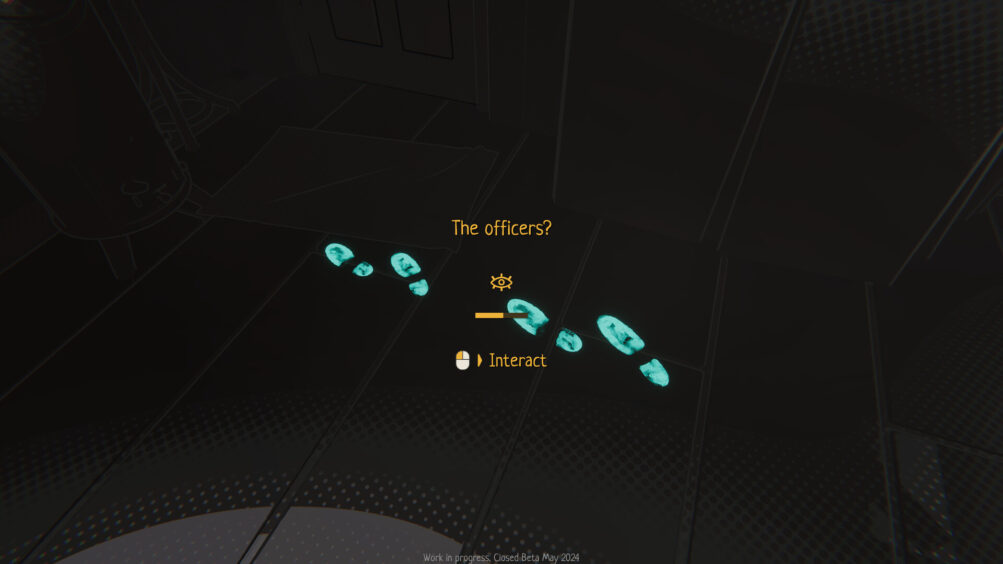
You can even cast doubt on statements to draw out more information, using clues you’ve already discovered to encourage the truth. Yes, cases often give you a lot of information to comb through and no way of searching for keywords, but the use of clever QoL systems – multiple types of categorised bookmarks and an easy way to filter them – and a solid hint system make it a joy to search for clues in historical documentation and the handily recappable interview statements.
Furthermore, the characters encountered throughout “The Darkest Files,” including those with smaller roles in the individual narratives, are richly developed and contribute significantly to the overall atmosphere. They are not mere stereotypes but feel like individuals shaped by the specific historical circumstances they inhabit. Their motivations, their fears and their interactions with the central investigations add layers of complexity to the stories being told, underscoring the human dimension within these larger historical events.
This attention to character detail further enriches the narrative experience and makes the consequences of the historical injustices feel deeply personal, leading the player to empathise with even the perpetrators of said crimes. At the end of the first case when the sentences were being read I genuinely felt like I’d served justice.
Technically the game is also incredibly well polished, performing well both on my old mid-tier rig and my Steam Deck on release. The aesthetic is beautifully and sensitively realised, providing a feel which is accessible yet respectful of the subject matter, and the musical style helps to bring together the truly mysterious and introspective atmosphere the game clearly aims for.
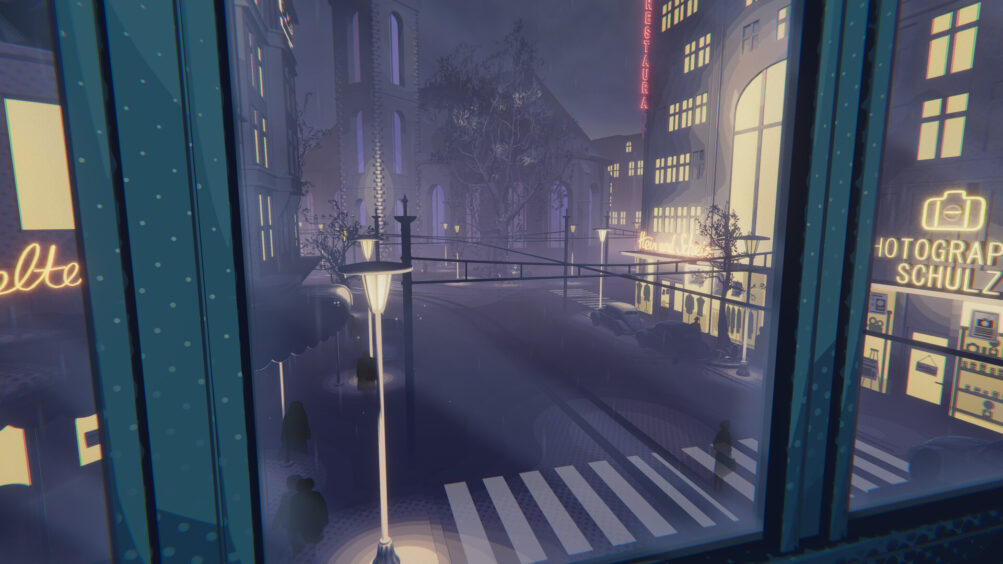
My only criticism would be around the difficulty of the title, which can sometimes reject valid evidence arbitrarily, despite it fundamentally proving the same thing as the eventual answer. For each assertion, you need to provide three pieces of evidence, and whilst there is an “easier” mode which can be activated, it would have been helpful if the game provided more detailed feedback on your selections, or at the very least told you which selections were rejected. Thankfully, you are given plenty of chances if you initially make a mistake, though I would have preferred to keep a perfect case score.
“The Darkest Files” stands as a significant achievement from Paintbucket Games. Its expertly managed atmosphere, engaging narrative structure and unwavering dedication to historical accuracy converge to create an experience that is both captivating and profoundly meaningful. It navigates challenging subject matter with sensitivity and intelligence, offering players a unique opportunity to engage with history in a way that is both informative and emotionally resonant.
This is more than just a game; it’s an interactive exploration of the shadows of the past, handled with expert precision and a deep respect for the stories it conveys. For those seeking a narrative adventure that transcends entertainment and provides a thought-provoking and historically grounded experience, “The Darkest Files” is an undoubtedly worthwhile purchase. It serves as a powerful example of the potential of games to engage with complex historical issues in a meaningful and impactful manner and is an easy contender for my game of the year.
The Darkest Files Trailer
Read more awesome reviews >>here<<.
The code was provided by the distributor.

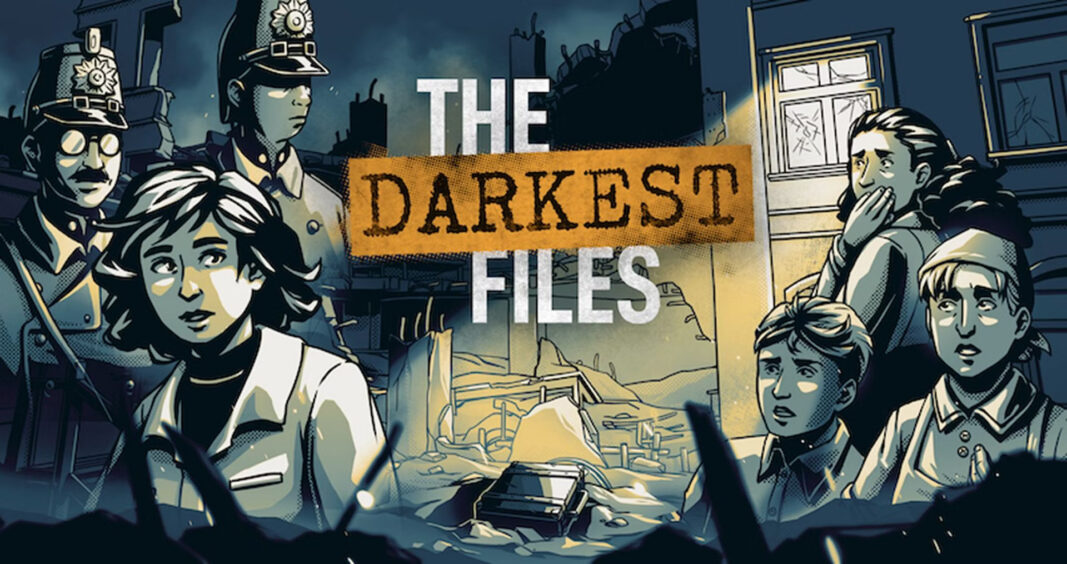






You must be logged in to post a comment.